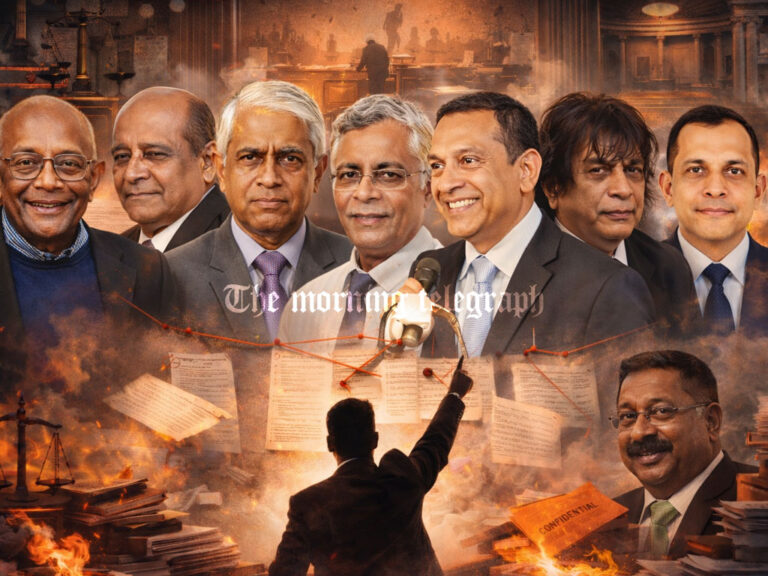
Journalist Uvindu Kurukulasuriya has raised fresh concerns about unequal access to one of Sri Lanka’s most sacred cultural and religious spaces, alleging that a select group is being ushered through the back door of the Sri Dalada Maligawa during the ongoing public exhibition of the Sacred Tooth Relic in Kandy.
Posting on his social media platform, Kurukulasuriya claimed that while the general public waits in long queues to pay homage, certain individuals—including family members of palace employees and relatives of Buddhist monks—are being given special access through an unofficial rear entrance.

“I said they were let in through the back door. The families of the employees at the Temple of the Tooth Relic who entered that way took photos with Minister Sunil Senevi. Additionally, the families of the Sangha were also brought in through the back entrance with permission. Another queue had formed there as well.”
He noted that this emerging pattern of backdoor admissions raises troubling questions about fairness and transparency. “There’s now a separate queue forming at the back gate,” he wrote, suggesting that the situation undermines the equal spiritual access expected at a place of such national and religious significance.
The Dalada Maligawa, also known as the Temple of the Sacred Tooth Relic, is one of the most revered Buddhist temples in the world and holds immense cultural weight in Sri Lanka. The public exhibition of the relic draws tens of thousands of devotees annually, making it both a spiritual event and a matter of civic logistics.
No official response has yet been issued by temple authorities regarding these claims, but Kurukulasuriya’s remarks have sparked public debate. Many are now questioning whether special access during sacred rituals contradicts the values of humility, equality, and reverence the temple embodies.
As Sri Lanka continues to wrestle with larger questions of governance, justice, and institutional accountability, even seemingly minor controversies such as this one reflect broader national concerns about privilege, transparency, and fairness.




